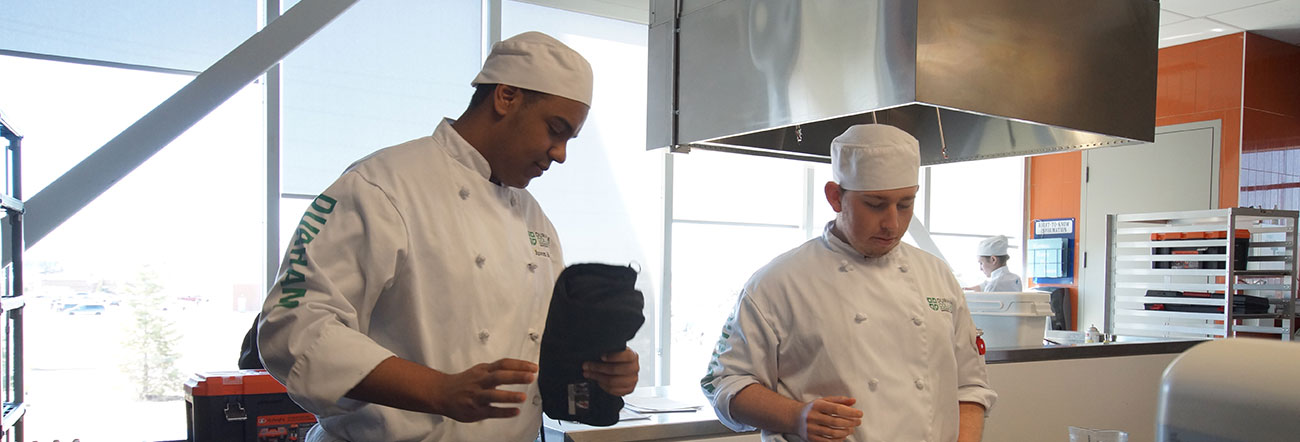
Cooperative education is a program that allows students to earn secondary school credits, while completing a work placement in the community. Through Cooperative Education, students are given an opportunity to apply concepts and expectations of specific school subjects during a work placement.
There is a classroom component and a placement component. Pre-placement classroom sessions will include health and safety training, review of job search skills, confidentiality, work ethics, the role of unions and a Personalized Placement Learning Plan for each student.
Students return to school on specified dates for reflective learning activities related to their workplace experiences. Together the classroom and the work placement provide students with:
- credits toward the Ontario Secondary School Diploma;
- valuable experience for future career destinations;
- hands on training for employment opportunities after graduation;
- apprenticeship training in the skilled trades during secondary school; and
- assessment and evaluation of learning.
Question and Answers
| What are the benefits of Cooperative Education? |
|
Cooperative education gives students the opportunity to:
|
| How does cooperative education help students meet graduation requirements? |
|
Cooperative education allows you to earn two or four credits. The number of credits depends on the length of the experience in the program:
Cooperative education credits may be used to meet up to two of the 18 compulsory credit requirements for an Ontario Secondary School Diploma (OSSD). Students may also earn optional credits for the OSSD through cooperative education courses. Evaluation is based on personal management skills, class and workplace participation, career and workplace research, daily log sheets, reflective journals, teacher and workplace supervisor performance appraisals and demonstrations of subject expectations. |
| What is the Construction Cooperative Education Program? |
| At Monsignor John Pereyma Catholic Secondary School, we are proud to offer students valuable work experience in home building and renovations via our Construction Cooperative Education program. Students enrolled in this program obtain four high school credits (three cooperative education credits and one dual credit delivered by Fleming College in Basic Electrical wiring, Heating, Refrigeration and Air Conditioning (HRAC) and Plumbing. For more information, call Rob Daminato at 905-432-8470. |
| How do I apply? |
|
Cooperative education teachers and placement supervisors are looking for students who demonstrate a positive attitude, possess a strong work ethic based on gospel values, have a sense of responsibility and who are committed to learning. If you are interested in taking cooperative education, complete the application form and return the completed form to your guidance teacher. Students must:
|
| Are there any participation requirements? |
|
A student's participation in Cooperative Education depends on a number of factors:
|
| Are there any costs associated with Cooperative Education? |
|
A student must cover the following costs associated with his/her cooperative education program:
|
Contact us
To learn more about cooperative education, speak with a member of our Guidance Team.
